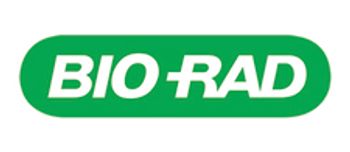
ViraTherapeutics will develop its VSV-GP therapy alone and in combination with other therapies.

ViraTherapeutics will develop its VSV-GP therapy alone and in combination with other therapies.

HHS entered into a $43.18 million contract with Sanofi Pasteur for the development of a Zika vaccine candidate.

The companies will collaborate on mRNA-based cancer vaccine development.

Adaptimmune entered into a manufacturing agreement with PCT for the manufacture of its SPEAR T-cell therapies.


The bio-incubator, located at the James Cook University Hospital, will give early-stage biotechnology and life-sciences companies access to facilities to support biomedical research.

On July 25, 2016 Kite Pharma entered into an agreement with the University of California, Los Angeles, (UCLA) to advance development of off-the-shelf allogenic T-cell therapies from renewable pluripotent stem cells. The company entered into an exclusive license agreement with UCLA for an artificial thymic organoid (ATO) cell culture system. The ATO replicates the human thymic environment to support efficient ex vivo differentiation of T-cells from primary and reprogrammed pluripotent stem cells.

The companies will test the efficacy of Rova-T in combination with Opdivo, and Opdivo + Yervoy as a treatment for extensive-stage small cell lung cancer.

The collaboration will focus on the investigational candidate JTX-2011 and up to four other early-stage programs in immune-oncology.

The company will collaborate with the Walter Reed Army Institute of Research to co-develop a Zika vaccine candidate.

The 10-year agreement augments Adaptimmune’s license and supply relationship with Thermo Fisher for the Dynabeads CD3/CD28 Cell Therapy System for use in the manufacture of Adaptimmune’s SPEAR T-cell therapies.

Amyris will use its platform technology to develop a library of natural and natural-like compounds to test against Janssen’s therapeutic target.


Celgene will pay Agios $200 million to lead exploratory, research, drug discovery, and early development work for metabolic immuno-oncology.

Pelican BioThermal, a provider of temperature-controlled packaging solutions for the life-sciences industry, announced on May 13, 2016 that it has entered into partnerships with BioThermal Solutions and NatBio, which offer cold chain logistics support in South America. Located in Sao Paulo, Brazil, NatBio was created to meet the demands of specialized clinics. BioThermal Solutions, based in Santiago, Chile, provides cold-chain maintenance solutions throughout Chile.

The collaborations have the goal of creating new tools that will help predict how people with Type 2 diabetes adhere to their medication.

The companies announced that they have mutually decided to terminate the planned merger after the US Department of Treasury and the IRS issue temporary and proposed regulations on tax inversion.

The commercial partnership aims to use digital health tools including sensors, apps, analytics, personal feedback, and education to assist patients in monitoring respiratory diseases.

A team of Bristol-Myers Squibb scientists will work in a new laboratory at the National Institute of Bioprocessing Research and Training facility in Dublin, Ireland.

The partnership aims to facilitate the development of therapeutic and diagnostic candidates for European biopharmaceutical clients.

The Human Vaccines Project brings together academic research centers, industrial partners, nonprofit organizations, and governments to address the primary scientific barriers to developing new vaccines and immunotherapies.

The new class of mAbs differs from approved anti-PD 1 mAbs because they do not block the PD-1-PD-L1 interaction.

The collaboration is part of Innovate UK’s competition for the development of regenerative medicines.

Curida entered into a partnership with René Bommer, PhD, founder and owner of pharmAccel Consulting.

Barvarian Nordic, Evaxion Biotech, and the Technical University of Denmark announced plans to collaborate on the development of a vaccine for MRSA.